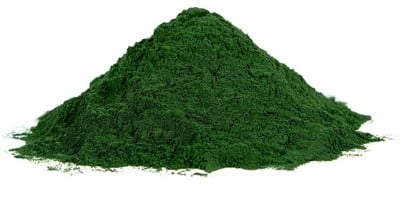

Spirulina allergy can cause a range of symptoms in dogs including itchy skin, irritated eyes, red, irritated ears, red and scaly skin, hair loss, and coughing. Additionally, some dogs may experience vomiting, diarrhea, and even anaphylactic shock. Spirulina allergy can cause a range of symptoms in dogs including itchy skin, irritated eyes, red, irritated ears, red and scaly skin, hair loss, and coughing. Additionally, some dogs may experience vomiting, diarrhea, and even anaphylactic shock.
The cause of Spirulina allergies in dogs is a reaction to the proteins in Spirulina, which the body incorrectly identifies as a foreign invader. When the body reacts to the proteins, it can produce symptoms ranging from minor issues such as itching and irritation to more serious issues such as anaphylactic shock.
The diagnosis of Spirulina allergy in dogs begins with a thorough physical exam and a review of the animal’s medical history. The vet may then run a skin test to look for allergens in the dog’s environment that could be causing the symptoms. Blood tests or a skin prick test can also be used to identify the specific allergen that is causing the reaction. Once the allergen has been identified, the vet can then put together a treatment plan to reduce the dog’s symptoms.
This allergy is very serious and can lead to a wide variety of symptoms in dogs. If this allergy remains untreated, it can lead to anaphylactic shock which can be fatal. The mortality rate of an untreated spirulina allergy is not known as this depends on the severity of the symptoms and the effectiveness of management, however it can be potentially life-threatening.
The treatment for dogs affected by Spirulina allergies will typically involve a combination of medications and lifestyle changes. Medications to treat the symptoms may include antihistamines, corticosteroids, fatty acid supplements, and anti-inflammatory medications. Lifestyle changes may involve switching to a hypoallergenic diet and avoiding contact with the allergen. Additionally, if the symptoms become severe, it may be necessary to consult a veterinarian for additional treatment.
The most effective way to prevent a spirulina allergy in dogs is to avoid giving them spirulina in their diets. Keeping the house free of dust, mites, and other allergens that may trigger a reaction is also important. It is also important to consult with a veterinarian if a reaction is observed as early diagnosis and treatment can lessen the severity of a reaction. If an allergen is identified, it is important to avoid contact with that allergen as much as possible and to create a plan for managing the symptoms.
Spirulina allergy is not contagious and cannot affect humans. It can only cause adverse reactions in dogs. It is important to note that not all dogs may be affected by a spirulina allergy – it is an individual reaction and it is important to work closely with a veterinarian to diagnose and treat this condition in your dog.
There are some home remedies that may be useful in managing a spirulina allergy in dogs. These include avoiding spirulina in food and treats, monitoring the ingredients in your dog’s diet, opt for natural products over synthetic ones, eliminating spirulina from your dog’s environment, limiting exposure to environmental allergens, bathing your dog regularly to reduce allergen build-up, and using natural supplements such as omega-3 fatty acids, probiotics, and vitamin E to help manage your dog’s skin health.
While trying some of these dog allergy remedies may be beneficial in managing a spirulina allergy, please remember that these are not a guaranteed solution and that it is best to consult with a veterinarian as soon as possible for a proper diagnosis and treatment.
There are several dog breeds that may be more vulnerable to Spirulina allergies, such as Labrador Retrievers, Chihuahuas, Poodles, Bull Terriers, German Shepherds, Greyhounds, and Shiba Inus. These breeds may be more likely to experience an allergic reaction to Spirulina, as they have a history of being affected by various environmental allergies. It is important to consult with a veterinarian if you suspect your pet may be suffering from a Spirulina allergy.
Have you ever had a dog that experienced a spirulina allergy? If so, how did they respond? How did you feel? How did you manage the process? It can be difficult to handle an allergic response in a beloved pet, and we hope that you and your pet found a way to cope with the spirulina allergy. We wish you and your dog all the best in the future and in dealing with any allergies that arise.